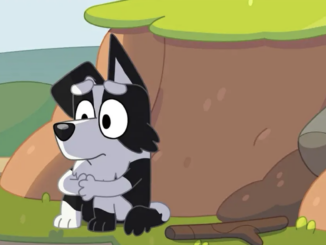I’ve written a few posts about things kids do at certain ages. There is always an element of variance in things like that; if something typically happens at 4, some kids will do it when they’re 3, some when they’re 5, some may skip it entirely and for some it may be a big part of their personality forever or for many many years. But I’m still able to say “this usually happens at this age” and be talking about an average.
This particular phenomenon, though, is something that peaks at two different ages, and has more to do with a lot of other factors: language ability and when it develops, whether a child has older or younger siblings, or the peers they usually hang out with, things like that. But if I had to put numbers on it, I could say something like:
Children typically go through two different “argumentative” phases that correlate with two phases of development. One is sometime around 4ish. The other is often somewhere in the 7-10 year old range.
By “argumentative”, here I’m talking about something specific. I’m not talking about just bickering or fighting even though the word “arguing” is used as a synonym for those. I’m not talking about “nuh uh, yuh huh, nuh uh” between siblings. I’m talking about a sort of pedantic argumentativeness that’s rooted in language ability and mental flexibility, arguing semantics, putting together a logically and intelligently structured argument (even if it might still be flawed or childish since they’re obviously children).
***
The first phase of this, the one that might be sometime around 4, we could call it being a phase of argumentativeness about definitions and categories. That’s because children at about 4 go through a massive phase of categorizing everything and learning how to “chunk up/chunk down” categories and create subcategories and such: an apple and an orange are both fruits, but a hamburger isn’t; fruits and meats are both foods, but a blanket isn’t; and so on, so forth.
So when they enter this first “argumentative phase” it’s usually the first time they have enough grasp of definitions and categories to start disagreeing with you about the ones you said. You might be like “hey can you grab the red plate” and they’re like, “it’s not a plate, it’s a DISH,” and they think that’s a successful argument.
Obviously in adult world, if someone did this all the time they would come off as very pedantic and as focusing on the wrong thing in the conversation, which is why it can be frustrating to adults. “It’s not 11:15, it’s 11:14.” “I wasn’t hitting her, I was slapping her.” “It’s not raining outside, it’s drizzling.” Since kids probably picked up most of their definitions from context clues and not from reading a dictionary, they might even be outright wrong about a definition they’re arguing with you on.
It’s frustrating sometimes. It’s okay to meet this with humor, or to take a deep breath and “be the bigger person” and understand this is a developmental phase, or to acknowledge their definition — taking their words seriously — and explain what you’re thinking, or to ignore the bid to get sucked into a semantics argument when the actual issue at hand is something more important, or any mix of all four of those.
“It’s not a red plate, it’s a red dish.”
“Oh yes of course, the red fish.”
“Nooo a red dish!!”
“Yes, yes, that’s what I need, the red squish.”
“It’s not raining outside, it’s drizzling.”
“Oh, it is? I didn’t know. Okay, it’s drizzling. Let’s grab your coat!”
“It’s not 11:15, it’s 11:14.”
“Ohh you’re right. That is what it says on the clock! Most adults tend to ‘round’ when they’re talking about time. Some times are more important than others and adults will just say the closest important one. But you’re actually correct. It is 11:14.”
“I wasn’t hitting her, I was slapping her.”
(Moving to get close to the fight that’s happening in order to intervene physically if needed further.) (Ignoring the semantics correction entirely.) “So what’s going on that everybody’s so frustrated?” / “What do you need right now?” / “How can I help?”
I noticed an example of this on Bluey the other day. Bluey’s dad says they’re going to the chemist (pharmacist). Bluey asks if they are sick. Her dad says “No, nobody’s sick.” Bluey says, “You lied just now! You said NOBODY’S sick, but Coco is sick,” naming a classmate at school. Bluey’s working mental definition for “nobody” was “nobody (in the world)” and her dad’s working definition for “nobody” was “nobody (in our family)”, but because the parenthetical parts of those definitions were unsaid, then the linguistic philosopher in her came through as she pointed out that they were semantically disagreeing!
***
The second phase of this, the one that often comes with a second leap in linguistic development and might be between 7-10, I could describe it as being a phase of argumentativeness about hypotheticals, what-ifs, lateral thinking.
It comes with a growing ability to imagine while rooted in some realism. There’s a difference in fantasy imagination, “a fairy/superhero/jungle animal came to my house and played” type imagination, and realistic imagination where you’re trying to predict what could happen or hypothetical situations. If you, an adult, are driving your car behind a truck that has a very precariously balanced piece of furniture that looks badly tied down, you might decide to pull into a different lane, or slow down a lot so you’re not right behind them. That’s because you can imagine/predict/hypothetical, “what if that furniture falls off?” and realize the end result, “then it would hit me and that would be bad,” and so you do something about it. That’s the kind of imagination, predicting, hypothesizing that children are emerging into in this stage.
It also comes with a growing, emerging ability to think laterally, to solve problems with creative solutions — combined with the imagination thing; now the child might be able to imagine what a problem solution might look like instead of coming at it through brute force or trial and error. Where a 2yo literally specifically goes through a “trajectory” play schema phase where they throw everything they can get their hands on, in order to get their brain acquainted with physics and the way those things work, now this older child can visualize what the result of throwing something might be, what its trajectory might look like, where it might bounce/ricochet/break, what the end result might be, without having to do it to find out.
The actual reason that I even thought of writing out this post about this phase in development was because, in my letter-writing program, I was writing 36 riddles to third graders and remembering my own fondness for riddles around that age, and realizing how much the riddles are absolutely perfect for this lateral thinking, arguing age! I can totally picture the kids simultaneously enjoying a riddle answer, groaning at the riddle answer, coming up with “no!! But…”s to the riddle answer, thinking of other lateral thinking solutions to the riddle, etc, etc.
“What is the size of an elephant but weighs nothing?” The answer given was “An elephant’s shadow”. And I could hear my inner 8-year-old immediately come up with a thousand lateral thinking protests and alternate solutions. “What about an elephant-sized lump of air? What about an elephant-sized the void of space? What if the shadow is actually BIGGER than the elephant because the sun is setting? What if you weigh the blades of grass that fall within the shadow, then it doesn’t weigh nothing!”
It’s like a tiny lawyer phase and it’s so delightful if you can keep that in your mind!
I read a post on Tumblr the other day that gave an example of this: the poster commented to their child “when bananas are green they’re not ripe yet, and when they’re yellow then they’re ripe,” and it spawned a whole discussion/argument about how technically someone could paint a green banana yellow on the outside and then sneak into a store and leave the single yellow-painted banana in the banana display and then if somebody opened this yellow banana it wouldn’t actually be ripe. The poster was actually understanding of how this is a normal phase of child development (even if it’s annoying) and that it’s important for kids to get a chance to flex their lateral thinking, predicting, imagining, figuring out skills through discussions like these.
***
Children who have a personality more intensely oriented toward the pursuit of truth and justice may cling to these types of arguments and discussions for longer than some other children do, and the range of ages on these is really wide because it has more to do with language ability than it does with calendar age.
This phase can be frustrating if you’re coming at it with fear, like many many phases for adults and caregivers. Adults frequently jump 12 years down the line in fear, imagining that their child will become a pedantic and frustrating adult if they flex their reasoning skills right now. Fortunately, child development doesn’t work that way. Kids having the ability to move safely through the phases of their brain developing without being hurt or punished for it does not make them into frustrating adults.



